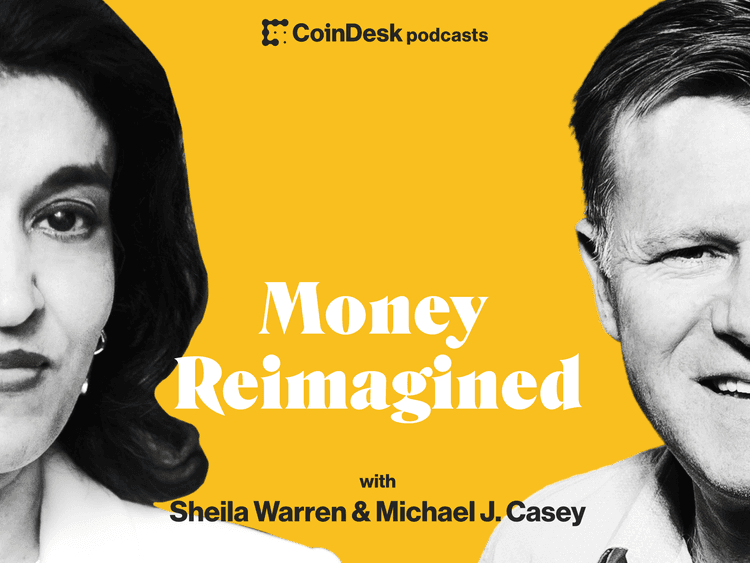How Crypto Might Offer Haiti an Escape From Its Slavery Debt Legacy
The story of Haiti, the poorest country in the Western Hemisphere, is a tragic reminder of the lasting impact of colonial injustice and how it extends into modern finance.
ABOUT
The story of Haiti, the poorest country in the Western Hemisphere, is a tragic reminder of the lasting impact of colonial injustice and how it extends into modern finance.
This episode is sponsored by and The Sun Exchange.
It’s why this episode, on the potential for blockchain technology and digital currencies to empower people in such places, begins with a powerful monologue by Sheila about the shameful, century-long legacy of a slavery-era debt. That debt, imposed by France in punishment of Haiti’s citizens for freeing themselves from their slave masters in a rebellion that founded their independence in 1805, later became a U.S.-owned asset serviced by a bank that would become Citibank. In that sense, this long-standing problem is directly related to the issue of Wall Street’s power and dominance in the age of dollar hegemony, a power that is challenged, in theory, by cryptocurrency and blockchain technology.
See also: Nigeria: A Rebellious Hotbed of Crypto Innovation
We learn from guest Jerry Tardieu, a Haitian author, entrepreneur, and politician who represents Petion-ville in the Chamber of Deputies, of how that debt legacy and the dependence on aid that came with it, has challenged Haiti’s capacity to strike its own economic path. He calls for technologies and policies that boost access to investment capital rather than aid.
We also hear from Daniele Jean-Pierre, the co-founder and COO of Zimbali networks, which delivers smart ledger solutions for the decentralized economy, on the kinds of solutions that entrepreneurs like her are developing to meet that call to action.
See also: Sudan and the Human Rights Case for Bitcoin
Image credit: Heather Suggitt/Unsplash modified by CoinDesk
HOSTS
Michael J. Casey is Chairman of The Decentralized AI Society, former Chief Content Officer at CoinDesk and co-author of Our Biggest Fight: Reclaiming Liberty, Humanity, and Dignity in the Digital Age. Previously, Casey was the CEO of Streambed Media, a company he cofounded to develop provenance data for digital content. He was also a senior advisor at MIT Media Labs's Digital Currency Initiative and a senior lecturer at MIT Sloan School of Management. Prior to joining MIT, Casey spent 18 years at The Wall Street Journal, where his last position was as a senior columnist covering global economic affairs.
Casey has authored five books, including "The Age of Cryptocurrency: How Bitcoin and Digital Money are Challenging the Global Economic Order" and "The Truth Machine: The Blockchain and the Future of Everything," both co-authored with Paul Vigna.
Upon joining CoinDesk full time, Casey resigned from a variety of paid advisory positions. He maintains unpaid posts as an advisor to not-for-profit organizations, including MIT Media Lab's Digital Currency Initiative and The Deep Trust Alliance. He is a shareholder and non-executive chairman of Streambed Media.
Casey owns bitcoin.

EPISODES
Crypto's Future of Policy, Politics, and the Fight for a Pro-Crypto Government
Messari’s Ryan Selkis from Bitcoin to crypto policy.
Jun 14, 2024
Embracing Nuance and Logic | The Diverse Community of Crypto
Post-Consensus 2024 reflections and examining the crypto industry and the implications of the U.S. Presidential elect...
Jun 5, 2024
‘Tokenization Is the Future of Real Assets.’
Max Boonen, CEO, and Co-Founder PV01, shares the advancements in technology and the war over regulation for tokenizat...
May 22, 2024
Future-Proofing Finance: MICA, Crypto Disclosure, and Global Regulatory Challenges
Bluprynt CEO and Georgetown Law Professor, Christopher J Brummer highlights the crucial need for financial disclosure...
May 18, 2024

The Mining Pod
Feb 10, 2025

CoinDesk Podcast Network
The top stories and best shows in the blockchain world, delivered daily from the team at CoinDesk.
Dec 20, 2023

Markets Daily Crypto Roundup
Tune in as CoinDesk runs down daily action in bitcoin markets and some of the most important recent industry development.
Dec 19, 2023

Unchained
Unchained, your no hype resource for all things crypto by former Forbes senior editor Laura Shin, author of The Cryptopians.
Dec 18, 2023

